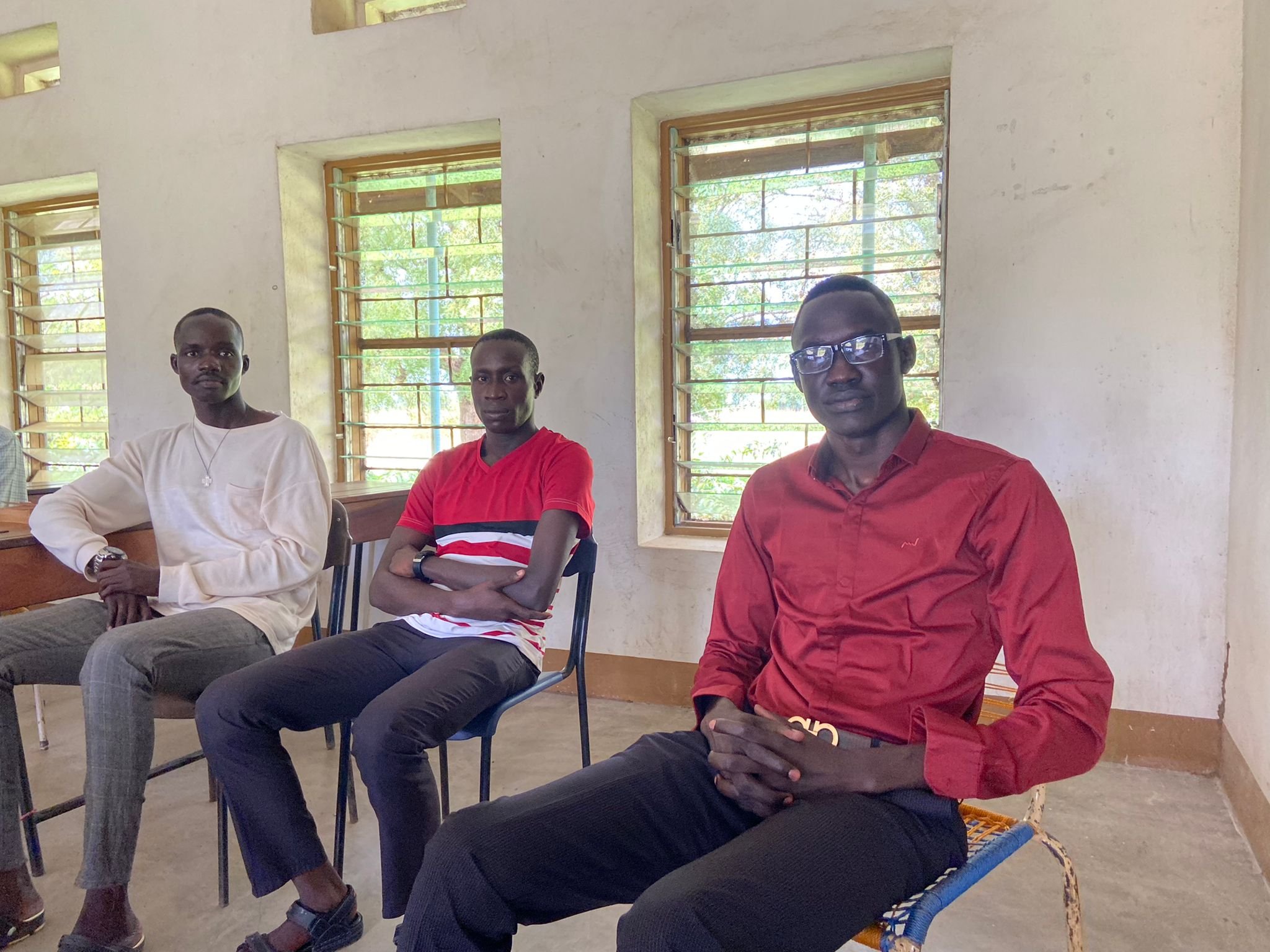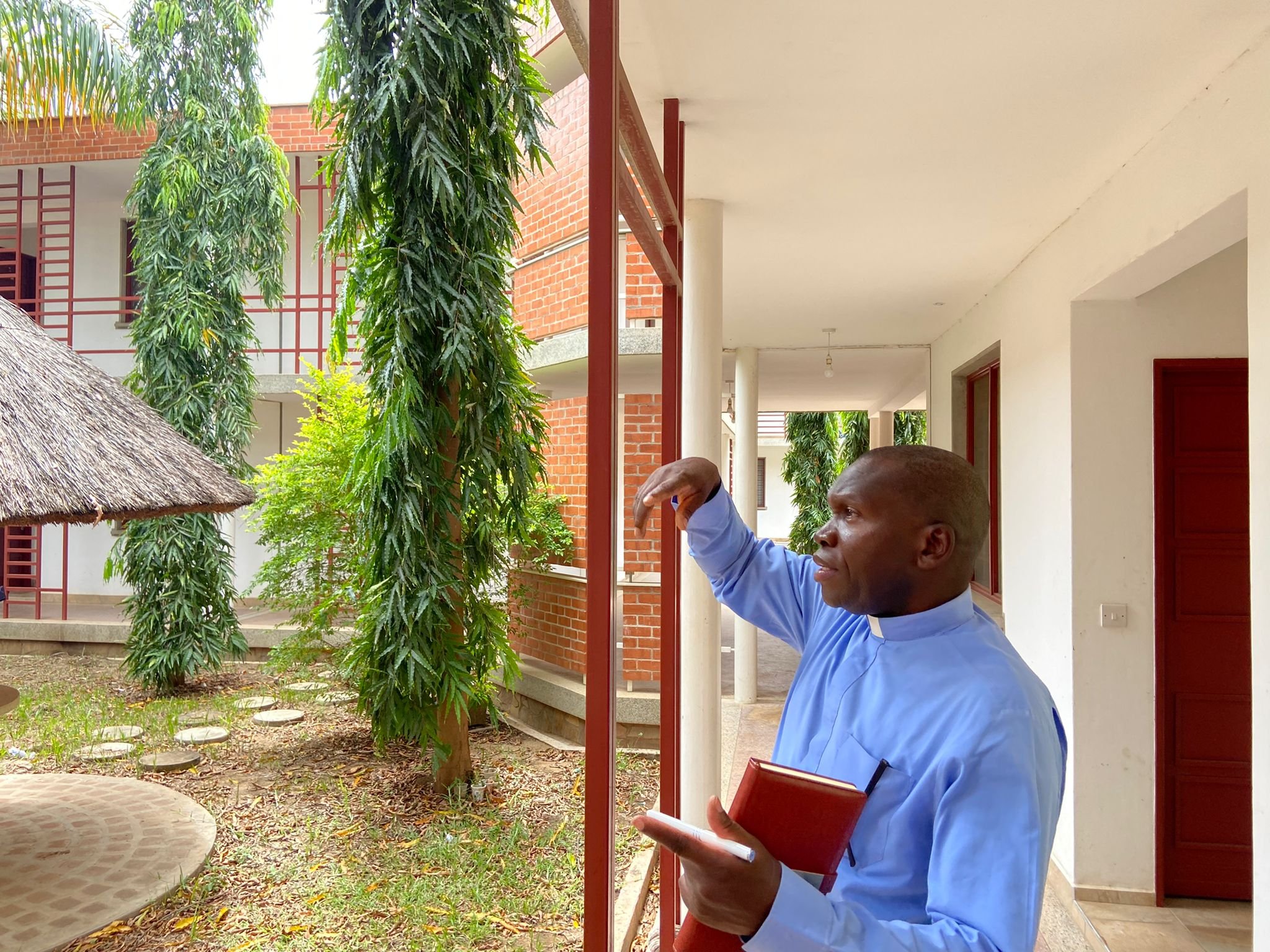Seminarians eager to serve the Church in South Sudan
A noticeable feature of the Church in South Sudan is the lack of local clergy, with most priests being missionaries from abroad. St. Paul’s Major Seminary is rectifying this by training a new generation of South Sudanese priests.
By James Bradshaw
Seminarians from St. Paul’s Major Seminary. (Credit: Aid to the Church in Need)
Like the rest of South Sudan’s Catholic Church, St. Paul’s Major Seminary has experienced many difficulties. Prior to independence, the seminary had to be moved back and forth between locations due to the war between the Southerners and the Sudanese government. Today, it operates on a large site in the capital city of Juba, and is home of 146 seminarians: a number which is growing steadily each year.
Father Baptist Franco. (Credit: Aid to the Church in Need)
In spite of the obvious piety of South Sudan’s many Catholics, a notable feature of the country compared to its neighbours is the relatively small number of local clergy.
Persecution is at least partially to blame. In a book about South Sudan, the Kenyan Jesuit Fr. Oscar Momanyi noted that the “Church had not grown out of the missionary stage of its development…mainly because of the effects of more than a century of injustice and marginalisation caused by wars and exploitation of the South of Sudan by [the] Islamic government in Khartoum.”
Though Islamic persecution is no longer an issue, the civil war since 2013 is, and the seminary’s rector Father Baptist Franco said there are many other obstacles to young men considering a vocation. Families in the country with the world’s lowest standard of living often feel that an educated young man should work to improve their family’s living conditions. Large families and clans are a survival mechanism, so parents often feel that their sons should marry and beget more children.
The work of the clergy is also becoming more dangerous as recent, high-profile attacks have left priests and nuns dead or wounded. This is the environment in which the rector is preparing his young charges as priests who will focus on serving and growing the Church.
St. Paul’s Major Seminary. (Credit: Aid to the Church in Need)
“We try to teach them about being missionaries. Yes, they are being sent from a particular diocese, but let them also believe that they can serve any part of the country if the need calls for it…Or even within the diocese itself, there are different ethnic groups or tribes, and you can be sent to any part of your diocese,” Fr. Franco said.
Though the seminary has found a secure home, the poverty of the South Sudanese Church means keeping all the residents housed and fed is difficult. To this end, ACN has in recent years funded the construction of a new 54-bed accommodation block for theology students. As is the case all over the world, ACN’s generous donors have thus made it possible to form the next generation of priests. The fighting since 2013 has impacted on all sorts of infrastructure across the country, and this project took many years to complete. More work needs to be done in the seminary, including expanding an inadequate library.
For all the challenges, it is easy to see why there is optimism about the Church’s future.
Francis is a 24-year-old from the sprawling diocese of Malakal in the northeast. Growing up in an isolated community where the faith was strong but where the Sacraments were not frequently available, he was inspired to enter the seminary. “I could see that there was a need for evangelisation. The place where I was, there used not to be a priest, so a priest had to come after maybe two years or three years and give the Sacraments…
“So someone who could die may be waiting for a priest to come and anoint them, but a priest is nowhere to be found. So I was really moved by that situation and thought ‘if I go to the seminary and maybe become a priest, I can be of help to these people who are in need,’” he said.



